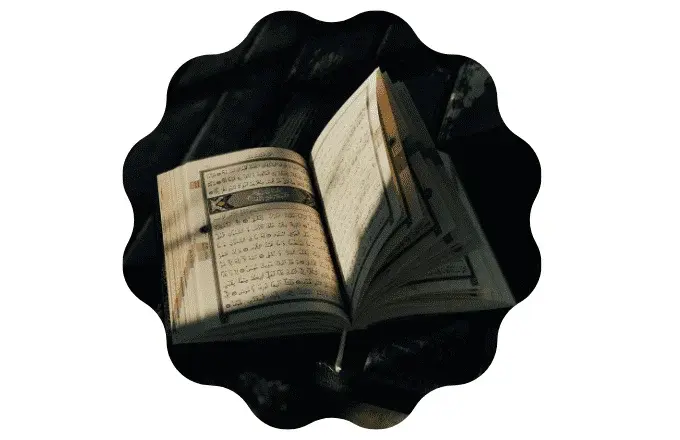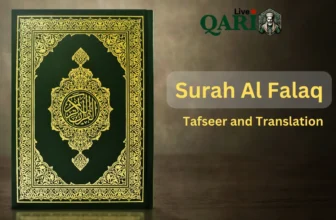
Tafseer unfolds the rich tapestry of Quranic understanding, offering diverse pathways for Muslims to connect with its profound teachings. Some use stories and teachings from the Prophet Muhammad’s (PBUH) time, called Tafseer bi-al-Ma’thur.
Others use their own judgment and knowledge, known as Tafseer bi-al-Ra’yi. Nowadays, people also look at the Quran through the lens of science or by keeping its teachings relevant today.
Join the Online Quran Courses and Learn from the Best Online Quran tutors.
Types of Tafseer Bi-Al-Ma’thur (Narrative)
Tafsir bil-Ma’athur (Narrative Tafsir)
Tafsir bi’l-Ra’y (Opinion-based Tafsir)
Tafsir al-Tafsir (Interpretation of Interpretation)
Types of Tafsir al-Ra’y (Rational / Philosophical Exegesis)
Tafsir al-Bi’l-Ra’y (Opinion – based Tafsir)
Tafsir al-Ishari (Allegorical / Symbolic Interpretation)
Tafsir al-Kalam (Theological Interpretation)
Join Now the Best Online Tafseer Course at Qari.Live and Start your Online Quran Classes Today.
Contemporary Forms of Tafseer
Scientific Tafseer
This modern form of Types of Tafseer examines the Quran through the lens of contemporary science, seeking to align revelations with scientific understanding.


Philosophical Tafseer
Philosophical tafseer delves into the metaphysics and ethics presented in the Quran, encouraging a reflective engagement with the text.
Thematic Tafseer
Thematic Tafseer groups verses by theme rather than by order, providing a focused examination of specific concepts across the Quran.

Tafsir Ibn Kathir: An In-Depth Exploration of Islamic Scripture Interpretation
Comparative Study of Tafseer Types
Benefits of Each Type
Each type of Tafseer offers a unique perspective, enriching the overall comprehension of the Quranic message.
Limitations and Considerations
While each methodology provides valuable insights, they must be approached rigorously to avoid misinterpretation.
Unlocking the Quran: Effective Tips and Techniques for Tafsir Study
The Process of Tafseer
Steps in Traditional Tafseer Methodology
The process involves rigorous linguistic analysis, cross-referencing with Hadith, and an understanding of Asbab al-Nuzul (reasons for revelation).

The Role of Context in Tafseer
Understanding the historical and situational context is crucial for accurate interpretation, ensuring the messages are not removed from their intended framework.
The Influence of Tafseer in Shaping Islamic Ideology
The Impact of History
Tafseer has been a cornerstone in sculpting Islamic legal thought, theological discourse, and philosophical inquiry, leaving an indelible mark on the Muslim intellect and soul over the ages.
Modern-Day Relevance
Today, Tafseer continues to influence contemporary discussions on types of tafsir in islam, providing a rich reservoir of wisdom for issues facing the modern world.
Unlocking Spiritual Wisdom: Exploring the Benefits of Quran Tafseer
FAQs (Frequently Ask Questions)
What is the primary difference between Tafseer bi-al-Ma’thur and Tafseer bi-al-Ra’yi?
The primary difference is that Tafseer bi-al-Ma’thur is based on narrations and traditions, while Tafseer bi-al-Ra’yi relies on personal reasoning and scholarly interpretation.
Can contemporary forms of Tafseer be considered authentic?
Contemporary forms of Tafseer can be considered authentic if they adhere to rigorous scholarly methods and are consistent with the core principles of Islamic theology.
How do scholars ensure they are correctly interpreting texts when conducting Tafseer?
Scholars cross-reference interpretations with Hadith, consider the historical context, and consult with other scholarly works to prevent misinterpretation when conducting Tafseer.
What is the relevance of Tafseer in modern Islamic discourse?
Tafseer remains highly relevant in modern Islamic discourse as it provides deeper insights into the Quran’s guidance on contemporary issues and challenges.
How many types of Tafsir?
Tafsir traditionally divides into Tafsir bi-al-Ma’thur, rooted in narrative tradition, and Tafsir bi-al-Ra’yi, blending reason with personal insight to enlighten the Quran, together forming a vibrant exegesis mosaic. Additionally, contemporary forms include scientific, philosophical, and thematic Tafsir.







